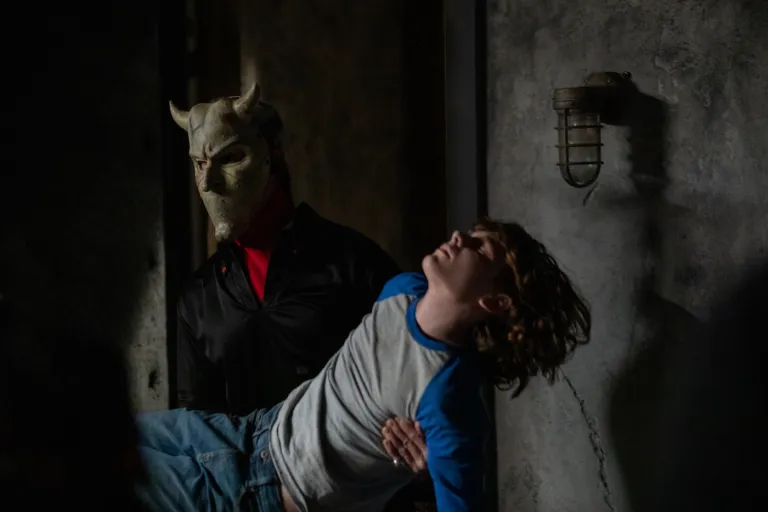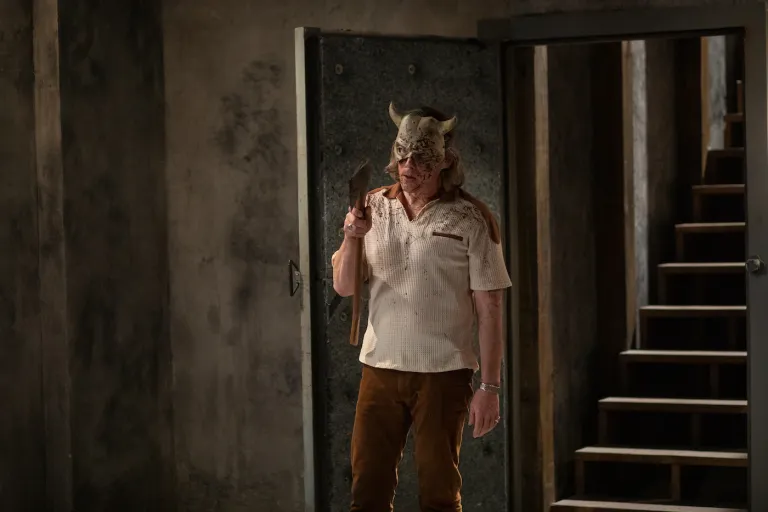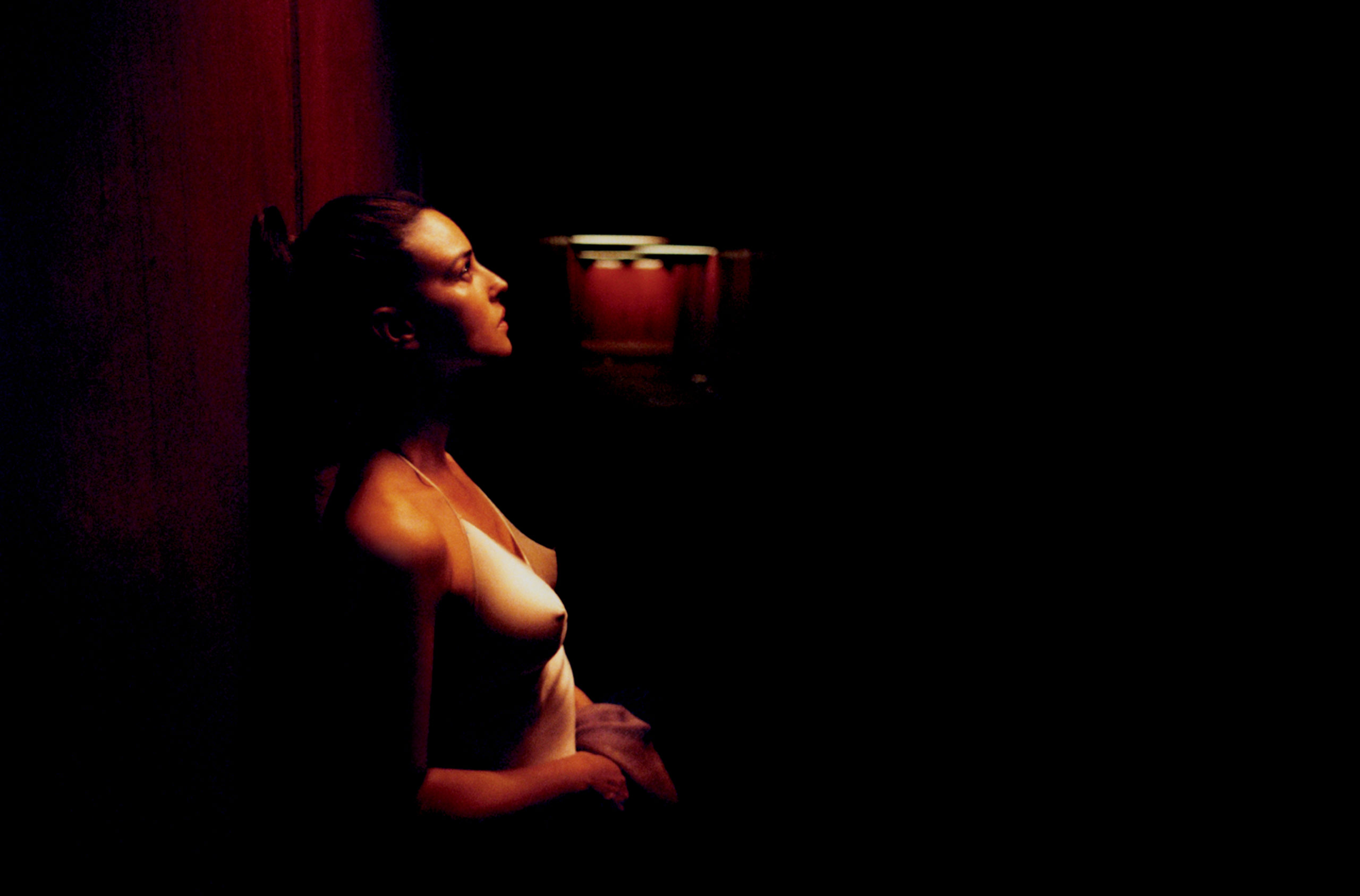
Full disclosure; I don’t like horror movies. I was born too late to be nostalgic for the classics, and was the perfect young age to be terrified by the 90’s slashers that, in retrospect, aren’t all that scary. A movie like Scream, for example, was a type of meta I wasn’t capable of understanding at six years old. All of this begs the question; what was I doing on a Tuesday afternoon in a movie theater seeing The Black Phone? That question has a couple of answers, none of which should be of much interest to anyone reading this review. The fact of the matter is; I was at the movie theaters on a Tuesday afternoon, and I did decide to see The Black Phone, a supernatural horror film. And, in spite of my dislike of horror films in general, it is a decision I’m glad I made, because The Black Phone is a damn good film.
The Black Phone is a simple film with two supernatural twists. Set in the late 1970’s, the film tells the story of a family that lives in a small suburb outside of Denver that serves as the host of the exploits of a serial child abductor known as “The Grabber”, played by Ethan Hawke. The family, 13-year-old Finney (Mason Thames), his younger sister Gwen (Madeleine McGraw), and their father Terrence (Jeremy Davies), are the emotional foundation of this movie. Finney, a shy boy who is bullied, can’t muster the courage to pick a lab partner or speak to his crush. Gwen, much more headstrong, has visions in her sleep that she hides from her alcoholic and abusive father. The film picks up when The Grabber gets his hands on Finney and the supernatural elements kick in. Trapped in a soundproof basement that contains only a bed and a disconnected phone, with no means to escape, Finn begins receiving phone calls from The Grabber’s past victims. These victims include a friend of Finn’s Bruce and Robin, a fellow outcast who stood up for Finn in the beginning of the film. Meanwhile, at home, Gwen tries to make sense of her visions and help the police find Finn in spite of her disapproving father, who believes visions are what killed the mother of his children.

This movie goes against the industry standard in almost every aspect. Whereas most horror films rely on shock scares and gore, The Black Phone earns its fear through storytelling, character development and acting. For those who think fondly of Hawke for great performances like the Before trilogy, you won’t believe what you’re watching as he eerily portrays The Grabber. Every moment he is on screen makes you want to run for the door, even in the safety of your own home. Davies, a veteran you may remember from Saving Private Ryan or Lost is equally brilliant. There is never justification for hurting a child, and I don’t believe this film tries to do that, but they (and, more specifically, Davies) do bring to life how someone could be driven to that dark place. They show you how, in his own misguided way, he is simultaneously grieving over the loss of the person he loved the most and trying to stop his daughter from following her path. Again, this is no excuse for his actions, which is why it is reassuring that at the end of the film, when he begs his children for forgiveness, they are almost indifferent, choosing to embrace each other instead. The whole messy arc is handled carefully and with nuance, as it should be.
Child actors are always fairly hit or miss, but The Black Phone was a resounding hit with their casting decisions. Mason Thames is wonderful as Finney. You feel his fear in the first act of the film. When Robin tells him that one day he’s going to have to stand up for himself, you can tell he hopes that day never comes. That Finney has a tangible arc occurring in a single room is a testament to how he is written and the execution by Thames. Just as good is McGraw as Gwen, who wears her strength and fearlessness on her sleeve. She isn’t strong because somebody says so in dialogue, we see it through her actions. When she steps in to help her brother in a fight and takes a kick to the face better than her male counterpart, or when she rides her bike in the rain with a look of determination desperate to find any clue of her brother. Yet, as her father chides and abuses her for visions, she whimpers in fear. This is what great character writing looks like. It is often forgotten that people aren’t defined by what they say or think, but by what they do. Gwen’s arc, like Finney’s, is told through her actions, and it is done so quite well.

All in all, The Black Phone could not have impressed me more. There are so many threads to pull on I could probably write another five paragraphs discussing what I enjoyed about the film. Movies with the type of depth, writing and performances that this one does tend to do that. Instead, I’ll just end this review by saying I wish we had more movies like The Black Phone. Not just because it’s a very good movie, but because it subverted the expectations of what I had for a movie of its genre. Sure, a portion of the film was watched by me between the gaps of my fingers, but between the scary parts is a human story grounded in realism. You root for Finn and Gwen because you feel like you know them. In some ways, you could be them. Isn’t that why we go to the movies in the first place?

The Black Phone was release in theaters on June 24.














